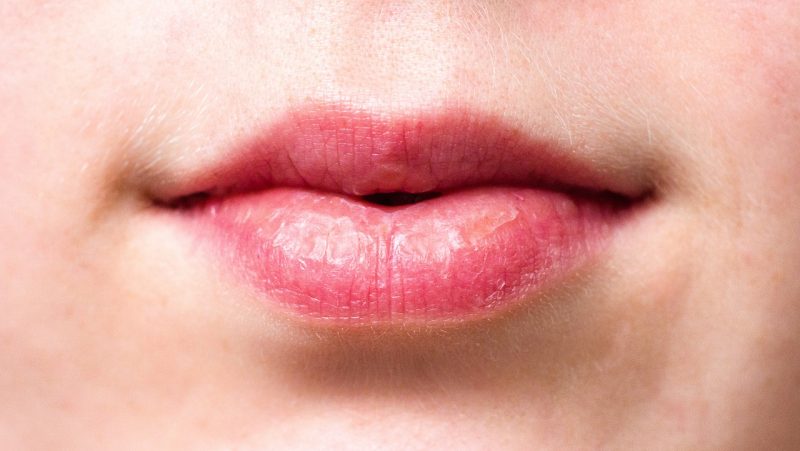
How to Cope with Winter Eczema
Causes, Challenges, and Natural Solutions for Relief - By Dr Eva Melegh
Reading time: 6 minutes
People who suffer from eczema are likely to experience more flare ups of dry, itchy or peeling during the winter months. This is due mostly to the drop in air humidity, central heating and friction from winter clothing as well as lowered immunity from frequent colds and flu.
General statistics report that about 1 in 10 people suffer from atopic skin and eczema, however a recent survey by the Skin Life Science Foundation found that in the UK, eczema has recently increased by almost 400%, with a shocking 44% of people surveyed experiencing atopic skin issues. Many of those surveyed cited the stress and anxiety of lockdown as the cause of their itchy skin. More than half of those surveyed said that their hands were the most affected part of their body.
With winter around the corner and the cost of living crisis looming this winter has a rather gloomy outlook for those suffering from atopic skin issues.
Typical first point of call treatment for eczema flares is steroids, they bring fast and spectacular improvement, but they do have negative side-effects and become less effective over long-term use.
Due to the concerns about over-use of steroids prescribed by doctors, natural products are starting to play a major role in the management of atopic skin
One effective alternative to steroids are phytosterols (which are plant-derived steroid-like components) known to be structurally similar to cholesterol, the basis of steroids. But unlike normal steroids, phytosterols offer anti-inflammatory effects without the undesirable side-effects of steroids. Many trials on these plant steroids prove their efficacy to reduce itching and inflammation in skin.
Eyelids prone to eczema can get particularly effected during the winter months as the skin around the eyes is very thin and prone to dehydration from the winter elements and overnight central heating.
Steroids should not be used around the eye area so only natural alternatives are suitable for this area of skin. Phytosterols are safer for use around the eyes and can greatly relieve inflamed dry and itchy eyelids.
Scalps exposed to dry harsh winter winds can also easily become drier which can trigger a scalp eczema flare. Often scalp eczema is mistaken for normal dandruff as both produce scalp flakes. However normal dandruff is caused by fungus and is not eczema or dry scalp. Using anti-fungal dandruff shampoos* on scalp eczema will likely make the problem worse not better.
The main difference between scalp eczema flakes and fungal flakes is in the size and colour. Scalp eczema produces fine white dry flakes and the scalp is usually very itchy. Fungal dandruff produces larger greasier flakes and the scalp is usually not that itchy, although the scalp can feel irritated.
Products that can help relieve winter eczema
Skin Phytosterols
As an alternative to steroids, the phytosterol Cardiospermum halicacabum is very effective for use on eczema. It’s extracted from a vine mostly grown in Sri Lanka, which offers an effective anti-inflammatory action for skin prone to eczema. The main active is extracted from the flowering parts of the cardiospermum vine.
These components mimic anti-inflammatory steroidal action making it a worthwhile plant-based alternative to steroids for atopic skin with the negative side effects.
Hydrosil products contain Cardiospermum halicacabum and are formulated for use on skin prone to eczema to relieve itching and inflammation. The Hydrosil range includes a skin salve, an eye gel and a scalp tonic for relieving eczema in these different areas (www.hydrosil.co.uk)
Donkey Milk
Donkey milk is an excellent natural skin soother for eczema flares and had been used in skin care remedies for dry and irritated skin throughout Europe’s history.
It is particularly helpful for eczema in children as donkey milk is the closest substitute for human breast milk and rich in vitamin A, B1, C, D E and essential fatty acids and contains high amounts of calcium, lyzozim and has four times less fat than cow`s milk. It’s often given to children prone to allergies to drink who cannot tolerate cow’s milk.
Donkey milk contains superb moisturizing active ingredients that have the ability to absorb 50 times its weight in water, hydrating the skin very effectively.
Donkey Milk also has a strong antioxidant activity and is rich in immune-boosting substances that benefit the human immune system. It`s antimicrobial effects also help prevent secondary bacterial infections of dry and cracked skin, making it an excellent therapy for atopic skin.
Donkey milk can be incorporated into skincare products and is also made into soaps for use on eczema prone skin.
The milk is ethically sourced in the same way as all other milks and is not harmful to donkeys in any way. Most donkey milk comes from Greece.
Turmeric Butter
Turmeric has been used for thousands of years in Indian in skincare. Many studies confirm the anti-inflammatory properties of turmeric powder.
Turmeric as a powder is quite difficult to absorb through the skin. However, when turmeric powder is blended with an essential oil it makes a rich ‘butter` which is much more effectively absorbed through the skin.
Turmeric butter* has potent anti-irritant, anti-inflammatory, and anti-microbial properties and enhances the percutaneous absorption of certain molecules and is highly beneficial for skin prone to eczema and extreme dryness.’
Skin prebiotics
Eczema and dry and cracked skin is caused by a malfunction on the skin’s barrier function, which causes the ski’s natural moisture to escape more easily.
Prebiotics applied directly to the skin can help replenish and repair the skin’s microbiota which is crucial for maintaining and repairing damaged skin barrier function.
Skin serums containing skin prebiotics can be very beneficial to skin prone to winter eczema and dryness of worn under other skincare products or cosmetics during the day and under any night creams at night as feeding the skin’s good bacteria helps build more resilient and robust skin.
Kalme TeQ Serum (kalme.co.uk) is a super hydrating skin serum for use on dry and sensitive skin containing potent skin prebiotics from blue agave plus plant-based squalene.
Lifestyle habits to help limit winter eczema flares
Reduce the temperature of showers
Its tempting to turn up the heat of winter showers when its cold outside. But this can be problematic for skin prone to eczema and dryness as the hot water increases evaporation of water on the skin and can contribute to skin dryness and sensitivity.
Moisturise skin while still damp
Adding your skin moisturiser or emollient while the skin is still damp after bathing can help lock in more moisture. Even better is to then wrap skin in a robe or towel while the moisturiser sinks in.
Drink turmeric tea
Eczema is also an inflammatory skin condition as well as a dry skin condition so reducing inflammation in the body is key to managing the condition.
Turmeric tea is a natural anti-inflammatory and is ideal for aiding both hydration and reducing inflammation.
Shower off winter sweat
Strangely we tend to sweat as much in cold weather as we do in the heat, largely due to layers of winter clothing and heating inside offices, houses and public buildings. We also tend to do more exercise indoors in gyms.
Sweating under heavy clothes or in gyms causes two issues for eczema prone skin. The heat itself can cause atopic skin to become irritated an the enclosed unbreathable damp environments can then cause the sweat to lead to bacterial inflammation of crevices of sweaty skin such as in the groin area, under the arm pits and breasts and in the cracks of the elbows and knees.
Ideally shower off sweat from winter or gym clothing as soon as possible, don’t leave it to sit on the skin. Or if you have to leave it for a while due to circumstances, try and find a way to ‘aerate’ the area for a while.
Take a high strength fish or plant-based omega oil supplement
Omega oils are crucial for improving skin moisturisation and through diet few of us get enough, especially those who suffer from dry and atopic skin.
So taking a high-strength fish oil or plant-based omega supplement (such as flaxseed) will help give skin an added moisture boost over the winter months.
*commission earned from this link





